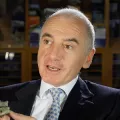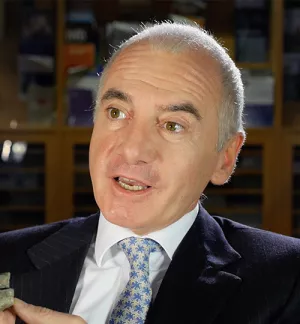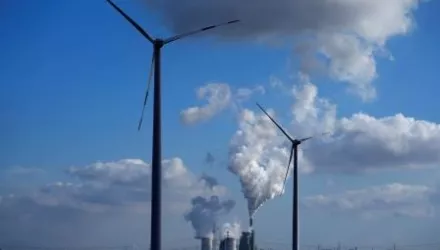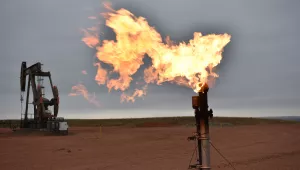If history is any guide, Vladimir Putin's iron grip on Russia could be threatened by the lowest oil prices in a decade. It also partly explains his increasingly belligerent stance toward the West.
Crude oil and natural gas prices have been central to Russian prosperity for decades. As they fluctuated, so did the country's fortunes. And they have led Russia to outward aggression before and could again.
For every dollar off the price of a barrel of oil, the Russian government loses $1.7 billion in annual revenue. The Russian government accrues about half of its revenue from the oil and gas economy. If prices remain at their current level, Moscow would bring in almost $50 billion less revenue in 2015. Subtract another $10 billion to $15 billion due to the renegotiation of gas contracts and that's a major hit to a revenue budget of around $400 billion, and a government that is depending on $100-a-barrel oil to meet its 2015 budget deficit goals.
In the 1970s, the explosion of crude oil and natural gas prices—linked in Russian export contracts—brought relative wealth to Soviet Union. That ushered in a brief "golden" season during the last years of the Brezhnev regime. The collapse of oil in 1986 undermined the stability of Gorbachev's government, spreading discontent.
The low prices prevailing during the 1990s kept Boris Yeltsin in a state of permanent instability, forcing his government into desperate moves like the uncontrolled privatization—tantamount to a fire sale—of state assets. That persisted until the 1998 collapse, when Russia risked a financial default.
Oil prices rose again after the appointment in August 1999 of a relatively unknown political figure as the new prime minister, a move interpreted by many as just another Yeltsin experiment doomed to failure. That prime minister was Vladimir Putin, who was eventually elected President of Russia in 2000, which kicked off a decade in which oil prices reached historic highs. Oil windfall profits allowed Putin to build up an undeniable domestic consensus, restoring political stability and re-launching Russia on the international scene.
Now, however, the combination of the Ukraine crisis, international sanctions and falling oil prices open up new, worrisome scenarios for Putin, Russia and the world order. International sanctions that have hurt the Russian economy have further added to the pressure on Putin.
In the last few months, Moscow has started cutting public services to the bone, slashing health and education expenditures and some basic allowances for the poor. Meanwhile, the rapid downfall of the ruble is dramatically reducing the spending power of most Russian citizens and threatens to push up inflation very soon.
The effect of low oil prices, combined with related factors, is already being seen in the actions of the Putin regime.
Along with the Ukrainian crisis, growing popular discontent could push Putin to take an even more aggressive stance both at home and abroad to squash domestic dissent and lay the blame on foreign enemies for Russia's woes. (This also might allow Putin to remain popular in Russia where his aggressive international moves are celebrated.) Many Russians blame the West—and the U.S. in particular—for much of what is going on after the explosion of the Ukrainian crisis. Mikhail Gorbachev himself, after initially standing with Putin, on Nov. 8 in Berlin warned the world that a new Cold War could be looming as a result of the many mistakes made by the West vis-à-vis Russia.
In their turn, most U.S. politicians put all the blame on Putin for the Ukrainian crisis and increasingly consider him an autocrat who will always be inherently hostile to U.S. interests in the world.
As long as oil prices stay low, it is unlikely that instability in Russia and the geopolitical and economic problems it causes will get better before it gets worse.
Maugeri, Leonardo. “Why Low Oil Prices Could Make Russia's Putin Even More Combative.” The Street, November 19, 2014





